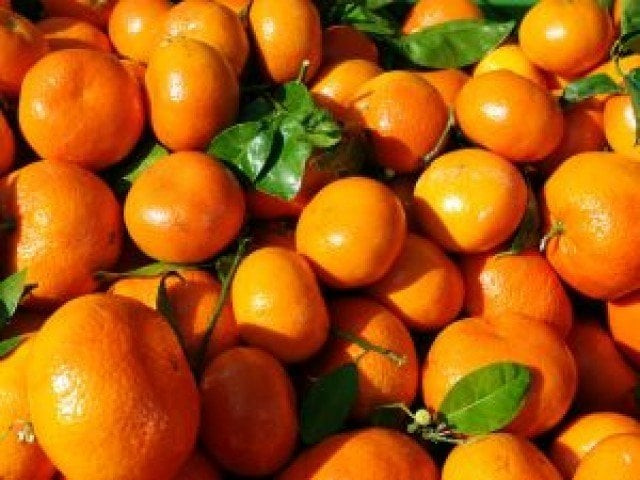Land of plenty, land of want: Agriculture in Wana caught in heat of the moment
Warmer winter stymies cultivation of seasonal crops

Warmer winter stymies cultivation of seasonal crops. PHOTO: FILE
The land of Wana is punctuated with fruit and vegetable orchards that have cemented the region’s image as the land of plenty. Agriculture has always been the mainstay of the people of South Waziristan. Climatic conditions have favoured the cultivation of apples and plums which generated considerable revenue for locals.
But like a curse that gets around, climate change has significantly stymied crop productivity. Insiders familiar with the matter told The Express Tribune, this winter was comparatively warmer than previous years. This negatively affected crop cultivation.
Signs of global warming
Although its effects have only been noticed this year, Wana has been in the grips of climate change for a long time now.

“Usually, almond crops ripen at the end of January,” said Naik Muhammad, a farmer. “However, the crop ripened earlier this year. Plums and peach have begun to flower.”
He added, “We usually sow grass seeds in winter and it grows in spring. But this year, the grass has grown earlier than usual - something that has never happened before.”
According to Naik Muhammad, the unexpected change in weather has negatively impacted the produce of apple orchards. “At this rate, if these sultry days continue or even a sudden chill creeps in, our crop will be damaged,” he added.
Oranges, not apples
Spin Valley has also been hit by climate change. Experts believe with time the valley will become so warm that its apple orchards will steadily begin to diminish.
Caught unawares by these sudden changes, farmers in the region have been left with no option but to select a crop which will not incur considerable losses. “We now prefer to grow plums and oranges,” said Raz Muhammad Wazir, a farmer in Spin Valley. “Apples, which are grown in winters are not as profitable as they used to be.”
Unwelcome change
According to Wazir, the weather in the valley has changed radically and has far-reaching implications.
“Most locals are no longer driven by the need to keep warm in winter,” he said. “Things have changed.” In the past, winter in Wana saw snowfall cover the mountains and the plains in a thick coat of white.
“We would remove the snow from our roof with a spade,” Gul Khan, a 70-year-old, said. “A biting chill would fill the air. Water in the lakes would turn to ice. But now there is no snowfall. The sun has melted the ice.” Residents are worried climate change will drastically impact their way of life. Most of them have attributed the increase in temperature to the use of weapons in the ongoing insurgencies in the region.
Others believe deforestation has a role to play in inducing the sudden burst of heat that has swept through the region. Agriculture in the region has already witnessed setbacks due to security reasons and climate change could put crop cultivation in Wana in serious jeopardy.
Published in The Express Tribune, February 8th, 2016.













COMMENTS
Comments are moderated and generally will be posted if they are on-topic and not abusive.
For more information, please see our Comments FAQ